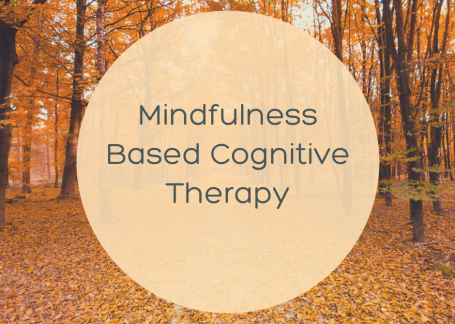How do you prevent depression from returning?
17 December 2021
Categories: TREATMENT

How do you prevent recurrent depression from coming back?
Jo and Clare, who lead our Mindfulness Based Cognitive Therapy group share their insight.
At italk we specialise in helping people to think and feel better. When people turn to us, it's often at a low point in their lives. We aim to support people through treatment to get back to feeling like themselves again.
So it may seem unusual that we offer a treatment for people who are already feeling well. But our MBCT group is specially designed for people who are in recovery, to help prevent their symptoms of depression from returning.
Depression can affect anyone, and around 1 in 4 of us will experience symptoms of depression at some point in our life. But while many experience depression once or twice, for some it can become a repeat visitor. If this is familiar to you, we hope our MBCT treatment may help.
Why does depression return?
Our best understanding is that our brains are constantly creating links to help us make sense of the world. Our brain stores what we experience without us really being aware of it, and it links those experiences together so that it's easier to recall our memories and knowledge later.
For example, our brain may link together the sights, sounds, and emotions of a particular experience. If you've ever noticed a particular song brings back emotions or memories from an earlier time in your life, that's those links in action.
In a similar way, sometimes even after we've recovered from a period of depression, small setbacks or events that we may otherwise feel able to cope with, can bring back those powerful emotions we had felt before, and begin a decline in our mood.
How does Mindfulness Based Cognitive Therapy help?
Our MBCT treatment is designed to help prevent depression from returning by helping us to understand the things that can cause our symptoms to return, and reduce their effect on us.
Depression affects not only our mood, but the way we think, the way we feel in our body, and the actions we take. This means when an event brings up negative emotions, it can also bring back negative patterns of thinking. Those thoughts and feelings can also affect our actions. We can be subtly led towards unhelpful ways of responding to problems or challenges, that keep us trapped.
For example, in our efforts to find ways to resolve a problem, we may find ourselves thinking about our situation a lot. But, over time, this can turn into ruminating or dwelling on the problem, and we find ourselves feeling worse.
Through the MBCT group, you'll learn how to use mindfulness to be more aware of these influences, and create space to reflect and change how we respond in these situations, or relate differently to the thoughts that arise.
What is mindfulness?
Mindfulness is practiced in a lot of ways, but the way we use it in MBCT is to help us to bring our awareness to the present moment.
We won't ask you to try to clear your mind, or control your thoughts. Instead, you'll learn to be more aware of your thoughts and feelings as they arise, and be curious about what they are and how they affect you.
Mindfulness is a skill, and like any skill it takes practice. But the more regularly you practice the more you'll get from it. Through the 8 week MBCT course you'll learn how to practice mindfulness, with the support of your practitioners and the group. You'll also receive exercises to help you practice at home, and we recommend making time for around 30 - 40 minutes practice per day.
How do I join?
Visit our Mindfulness Based Cognitive Therapy page to find out more, and see whether MBCT could be helpful for you.
If you feel you fit the eligibility criteria, and could benefit from the MBCT group, please remember to mention "MBCT" when you make your referral. Then, you will see a page letting you know that we have received your referral and will be in touch.
If you do not mention MBCT you may instead see a page inviting you to book an assessment or wellbeing course. If this happens, please contact us on 023 8038 3920 or email info@italk.org.uk to let us know you wish to access MBCT.
Categories
10th Birthday
Employment Advice Team
Italk Health
Men's Mental Health
Outreach
Share Your Story
Treatment
Wellbeing
Archives
September 2023
March 2022
February 2022
January 2022
December 2021
November 2021
October 2021
August 2021
July 2021
June 2021
May 2021
January 2021
October 2020
September 2020
May 2020
April 2020
May 2019
 Menu
Menu


